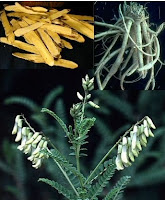Type 1 Diabetes | Type 2 Diabetes | Gestational Diabetes | Secondary Diabetes
What are the different types of diabetes?
There are two major types of diabetes, called Type 1 and Type 2.
Type 1 diabetes was also called insulin dependent diabetes mellitus (IDDM), or juvenile onset diabetes mellitus.
In Type 1 diabetes, the pancreas undergoes an auto-immune attack by the body itself, and is rendered incapable of making insulin. Abnormal antibodies have been found in the majority of patients with type 1 diabetes.
Antibodies are proteins in the blood that are part of the body's immune system.
The patient with Type 1 diabetes must rely on insulin medication for survival. In auto-immune diseases, such as type 1 diabetes, the immune system mistakenly manufactures antibodies and inflammatory cells that are directed against and cause damage to patients' own body tissues.
In persons with type 1 diabetes, the beta cells of the pancreas, which are responsible for insulin production, are attacked by the misdirected immune system. It is believed that the tendency to develop abnormal antibodies in type 1 diabetes is, in part, genetically inherited, though the details are not fully understood.
Exposure to certain viral infections (mumps and Coxsackie viruses) or other environmental toxins may serve to trigger abnormal antibody responses that cause damage to the pancreas cells where insulin is made. Some of the antibodies seen in type 1 diabetes include anti-islet cell antibodies, anti-insulin antibodies and anti-glutamic decarboxylase antibodies. These antibodies can be measured in the majority of patients, and may help determine which individuals are at risk for developing type 1 diabetes.
At present, the American Diabetes Association does not recommend general screening of the population for Type 1 diabetes, though screening of high risk individuals, such as those with a first degree relative (sibling or parent) with Type 1 diabetes should be encouraged.
Type 1 diabetes tends to occur in young, lean individuals, usually before 30 years of age, however, older patients do present with this form of diabetes on occasion. This subgroup is referred to as latent auto-immune diabetes in adults (LADA).
LADA is a slow, progressive form of Type 1 diabetes. Of all the patients with diabetes, only approximately 10% of the patients have Type 1 diabetes and the remaining 90% have Type 2 diabetes.
What are the symptoms of diabetes?
The early symptoms of untreated diabetes are related to elevated blood sugar levels, and loss of glucose in the urine. High amounts of glucose in the urine can cause increased urine output and lead to dehydration. Dehydration causes increased thirst and water consumption. The inability of insulin to perform normally has effects on protein, fat and carbohydrate metabolism. Insulin is an anabolic hormone, that is, one that encourages storage of fat and protein.
The inability of insulin to perform normally has effects on protein, fat and carbohydrate metabolism. Insulin is an anabolic hormone, that is, one that encourages storage of fat and protein. A relative or absolute insulin deficiency eventually leads to weight loss despite an increase in appetite.
Some untreated diabetes patients also complain of fatigue, nausea and vomiting. Patients with diabetes are prone to developing infections of the bladder, skin, and vaginal areas.
Fluctuations in blood glucose levels can lead to blurred vision. Extremely elevated glucose levels can lead to lethargy and coma.
The fasting blood glucose (sugar) test is the preferred way to diagnose diabetes. It is easy to perform and convenient. After the person has fasted overnight (at least 8 hours), a single sample of blood is drawn and sent to the laboratory for analysis. This can also be done accurately in a doctor's office using a glucose meter. Normal fasting plasma glucose levels are less than 100 milligrams per deciliter (mg/dl).
Fasting plasma glucose levels of more than 126 mg/dl on two or more tests on different days indicate diabetes.
A random blood glucose test can also be used to diagnose diabetes. A blood glucose level of 200 mg/dl or higher indicates diabetes.
When fasting blood glucose stays above 100mg/dl, but in the range of 100-126mg/dl, this is known as impaired fasting glucose (IFG). While patients with IFG do not have the diagnosis of diabetes, this condition carries with it its own risks and concerns, and is addressed elsewhere.
Related Topics
DIABLIN Best for Diabetes - the "Silent Killer"
PRODUCT RECOMMENDATIONS
For more inquiries: Txt or call JESS VILLARIN QUIJANO 0926-1997-358 (TM); 0929-4234-591 (Smart)








